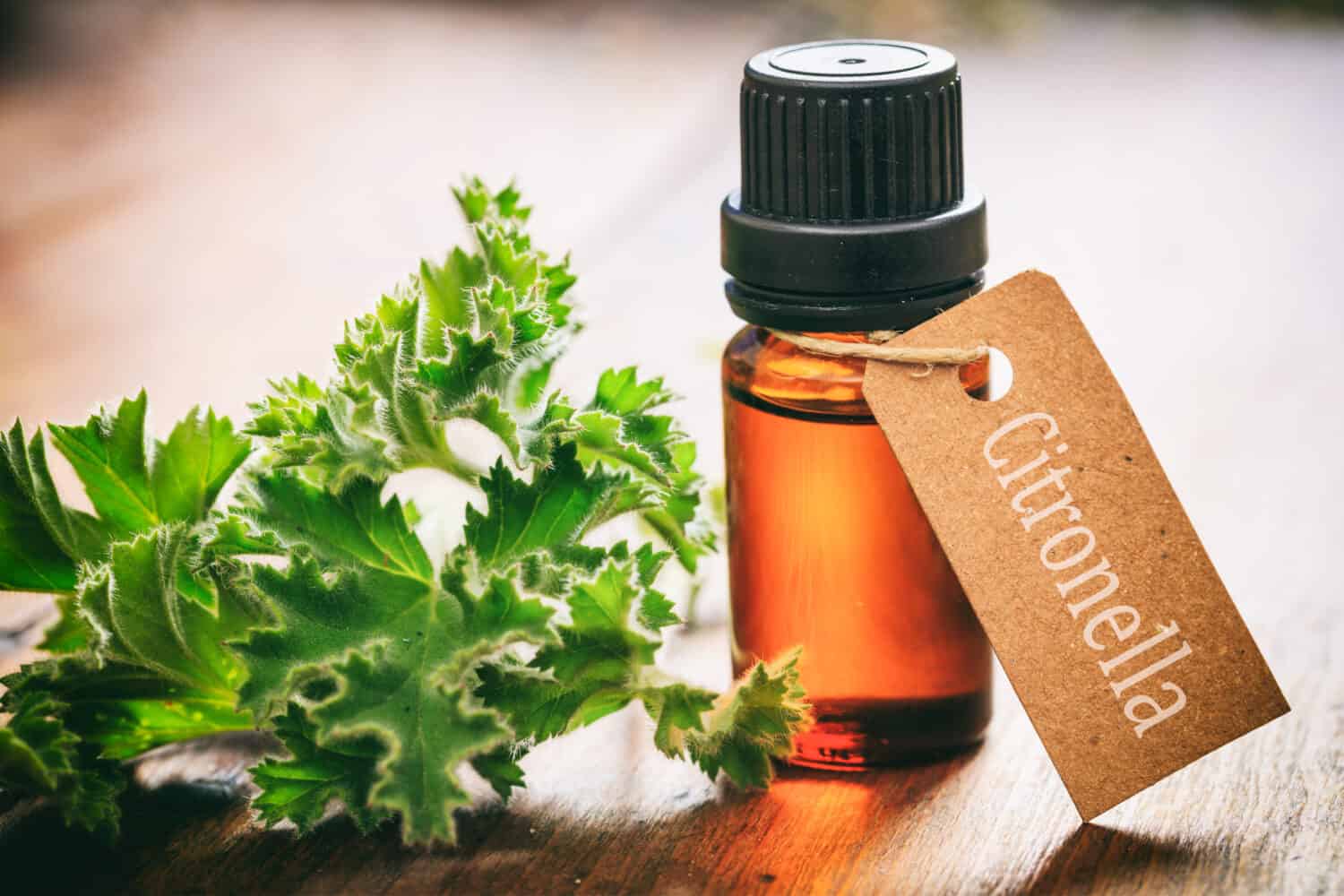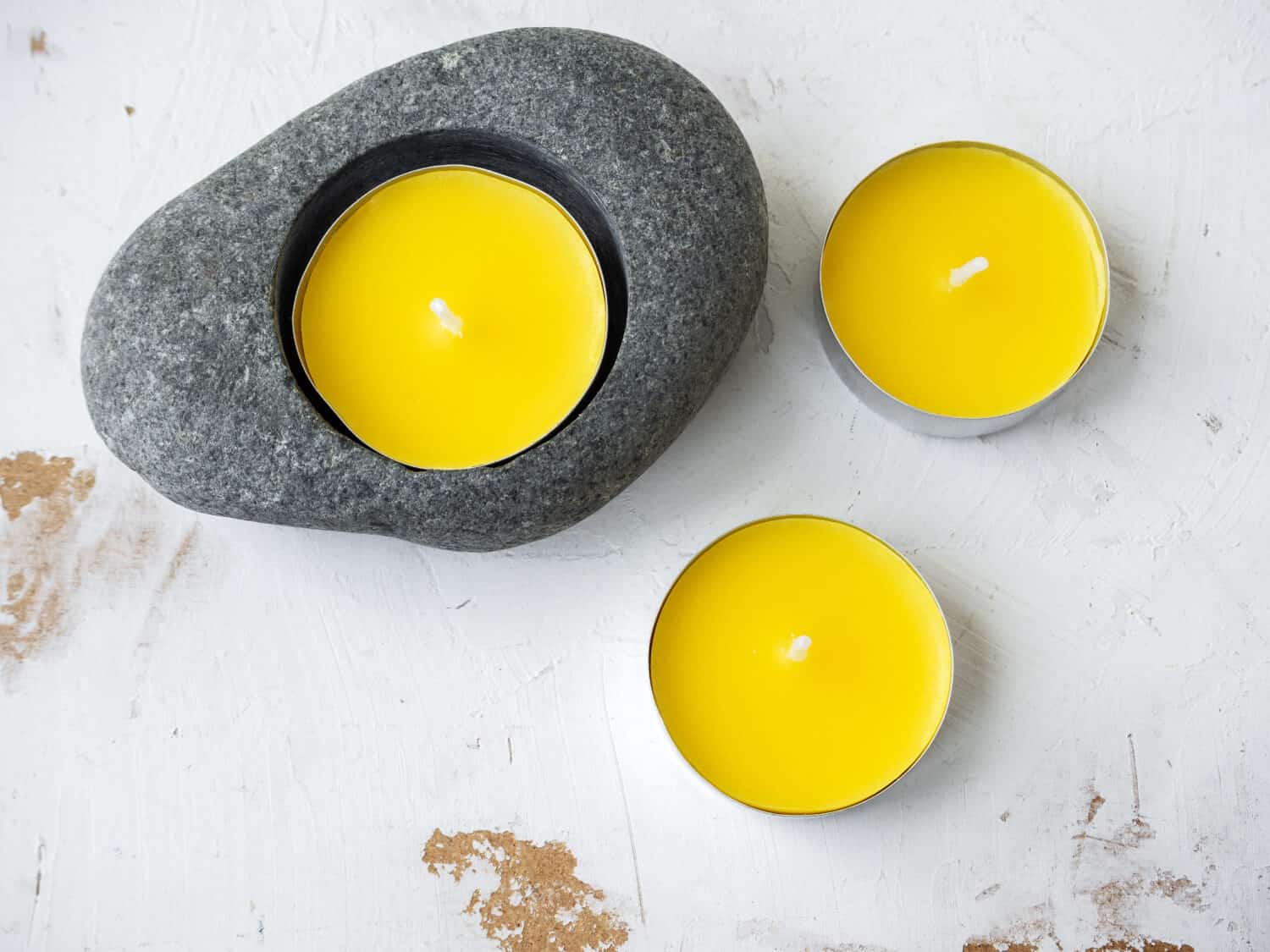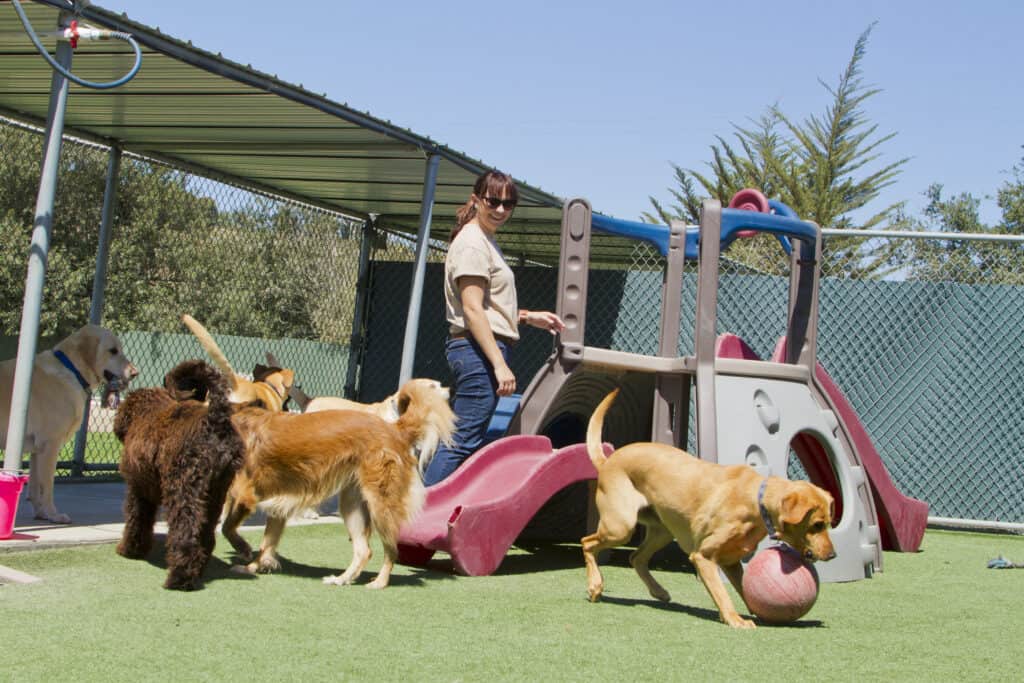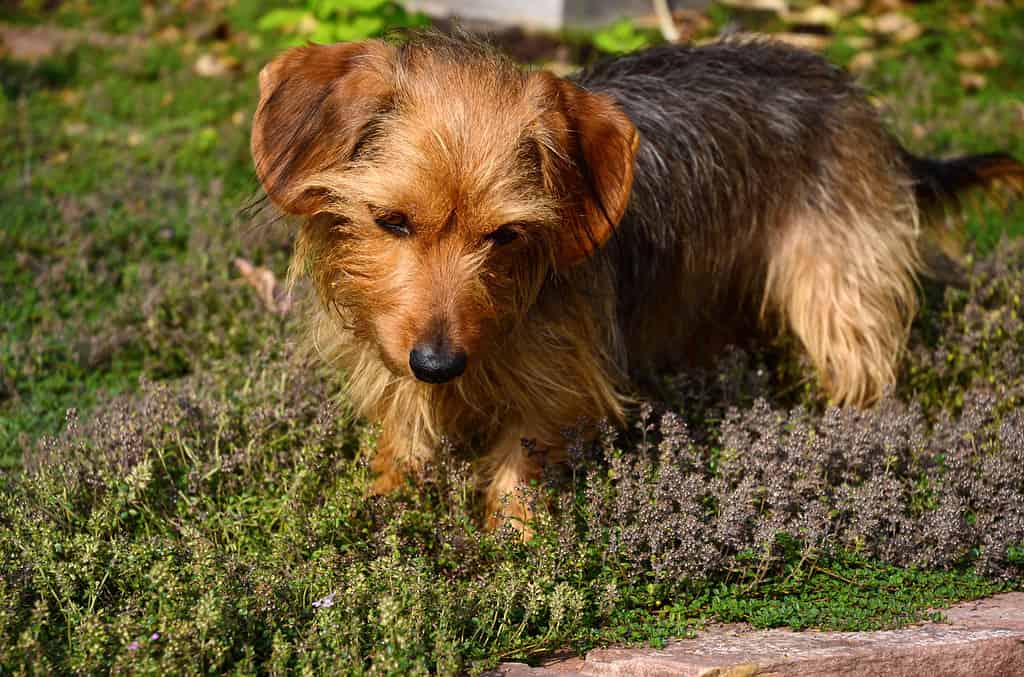Summer offers countless activities to enjoy with your furry friends. From adventuring on hikes to exploring new restaurants’ pet-friendly patios, there’s always something exciting. Yet, lurking in the shadows of these peaceful summer evenings are the relentless tormentors of the insect world — the mosquitoes. Their persistent buzzing and itchy bites threaten to disrupt the tranquility of our outdoor escapades.
In search of a solution, thoughts turn to citronella, that aromatic substance known for its purported mosquito-repellent properties. But here lies the problem — can we confidently employ this fragrant remedy without compromising the well-being of our canine companions? Is citronella safe for dogs?
Citronella is safe for human use, although the same can’t be said about dogs. Dogs have a sensitive sense of smell, and due to this reason, citronella can be overwhelming to their nasal passages. Also, some dogs exhibit adverse reactions such as skin irritation or gastrointestinal upset if they come into direct contact with or ingest citronella products. Learn more about alternative ways to protect your four-legged buddies from pests without any risk to their health.
What is Citronella?
The Citronella grass belongs to a family of plants called the Poaceae. Other famous plants in this family include barley, wheat, rice, and sorghum. Citronella flourishes in hot and moist regions around Asia (such as China and Vietnam), Africa, Nepal, and the Caribbean islands. The plants can get quite tall, reaching approximately 1.5 meters, and produce a refreshing lemony scent.
Many individuals use these plants to make their mosquito repellents. Some even incorporate citronella into products like soaps, lotions, or candles. You can extract oil from this plant through steam distillation.
Is Citronella Safe For Dogs?
The answer is a resounding no; citronella is not safe for dogs. Citronella can make dogs sick if they eat or come into contact with anything containing it. Some dogs might try to eat citronella candles or plants attracted by its strong scent. This might lead to stomach problems like vomiting or diarrhea in dogs.
More severe signs like muscle weakness, loss of coordination, lower body temperature, or in worse cases, death, may result if significant amounts of citronella are consumed. If you suspect your pet has accidentally eaten any part of the citronella plant or candle, seek veterinary assistance immediately.

Citronella isn’t safe for dogs and can lead to vomiting and stomach issues if ingested.
©Ammit Jack/Shutterstock.com
What Are the Safe Ways to Use Citronella Dogs?
Keep Your Citronella Items Out of Reach
Store all citronella products in a secure location where pets cannot reach or knock them over accidentally. Ensure lids are tightly closed after use to avoid unpleasant smells or leaks. When camping or tailgating, lock up insecticides inside vehicles or special compartments built into campers. Locking reduces the risk of food and water getting contaminated and mitigates pet interactions.
Be Careful When Using Citronella Products Intended for Human Use
Recognize that human versions of bug candles frequently use higher concentrations than animal varieties. Since many manufacturers market these two varieties identically, distinguishing appropriate levels for domesticated creatures from those suitable for wildlife becomes difficult. You, therefore, need to be clear about the intended use of citronella products.
You should follow professional recommendations or guidelines about specific pest eradication methods, dosages, timelines, or application techniques meant for particular species with varying sensitivity.

Ensure clarity on the intended use of citronella products for optimal effectiveness and safety.
©rawf8/Shutterstock.com
Place the Candles at a Safe Distance
You should keep your candles further away depending on your dog’s age, size, breed, and sensitivity. This distance will minimize the aerosolized citronella entering your dog’s nose, reducing potential reactions.
Ensure all family members understand the importance of maintaining an adequate buffer zone between the citronella candles and the dog. Make clear rules about not approaching or touching the flames or glass jars under any circumstances.
Optimize Ventilation
Keep windows open at the opposite side of the yard where candles are placed to encourage cross breeze. A good flow of fresh air prevents the excess accumulation of candle molecules. Additionally, this helps regulate the temperature inside your home, keeping things comfortable for pets by avoiding overheating. Stagnant indoor air traps odors, increasing the risk of respiratory issues or skin irritations, which could cause restlessness, agitation, or sneezing.

Fresh air circulation reduces odors and maintains a healthy indoor atmosphere, preventing respiratory issues and promoting calmness for your furry companions.
©iStock.com/Akchamczuk
Implement Integrated Pest Management (IPM) Strategies
Employ IPM methods designed to reduce reliance on harmful chemical interventions. Encourage biological controls by introducing predator species such as:
- Dragonflies
- Damselflies
- Ground beetles
- Predatory mites
- Ladybird beetles
- Praying mantises
- Robber flies
- Syrphid fly larvae
- Wasps
Additionally, remove standing water regularly or convert it into a managed habitat suitable for fish or aquatic animals capable of consuming mosquito larvae. Plant diversity attracts diverse faunal populations serving as food chains for parasites attacking adult vector insects.
Obtain Expert Advice from a Vet
Every dog is unique and may have distinct medical histories impacting its reactions to certain odors. Some breeds and individuals with sensitive respiratory tracts or skin issues may suffer more distress due to more potent essential oils like citronella.
Additionally, older dogs lacking proper detoxification enzymatic functions might need help breaking down these molecules. Only a qualified examining vet can help determine if particular dogs can handle this exposure level, including the application frequency.
How Effective Is Citronella as an Insect Repellent?
Research shows that citronella is less effective than DEET as an insect repellent. Combining citronella with Vanillin increases its effectiveness but for no more than three hours. Additionally, strong winds and disease-carrying mosquitoes weaken its potency.

Combining citronella and Vanillin increases its effectiveness.
©Ana Belen Garcia Sanchez/Shutterstock.com
The Science Behind Mosquito Attraction: Is DEET a Safer Option?
To effectively repel mosquitos, you must first understand what draws them in. Mosquitoes are typically lured by fragrances like scented perfumes/soaps, dark clothing colors, and warmer body temperatures.
Only use unperfumed dog shampoos and ensure the hair gets thoroughly rinsed afterward since moisture attracts the bugs around.
Consider using strong forms of citronella alternatives, specifically ones containing DEET. Remember, though, while this option has potency, it still poses risks. New research shows that in the event of exposure to toxic levels of DEET, our pets can develop alarming symptoms, such as:
- Vomiting
- Diarrhea
- Tremors
- Seizures
- Excitation
- Hypersalivation
What Are the Safest Alternatives to Using Citronella While Keeping Dogs Safe?
Here are four options for Safely keeping dogs safe and protected from potentially dangerous mosquito bites during Summer months.
Vibrant Houseplant Scents
Introducing houseplants with strong mosquito-offensive odors is another effective way to reduce the bugs’ presence at home without relying solely on chemical products. Fragrances from certain plants can confuse mosquitoes’ sense of direction and lead to reduced biting activity.
Marigolds, for example, are an excellent choice and can even detract nematodes in the ground and enhance the growth rate of tomato plants. Basil, Sage, Lavender, Mint, and others also work great. Place them closer to seating arrangements where people and pets lounge.
Remember that adding green leafy foliage alone wouldn’t work for this purpose. Pluck some fresh leaves and rub them against bare skin to test their effectiveness. If the plant doesn’t produce a pungent smell, it won’t drive mosquitoes far enough.

Certain fragrances from certain plants can confuse mosquitoes’ sense of direction and lead to reduced biting activity.
©FunFamilyRu/Shutterstock.com
Natural Candle Options
Some plant-based candles emit strong scents that mask the human odor and make us less attractive to bugs like mosquitos. The plants add a pleasant fragrance and can be decorative in home design. Catnip, African Violets, lemon balm, and Rosemary are some plants that contain volatile oils which deter insects. Place them around entryways or gathering spots where pets frequently rest inside and enjoy beautiful botanical scenery.
Mosquito Nets
Providing adequate protection for pets is essential. One safe option is using mosquito nets to cover kennels or crates. While most dogs prefer to lounge outside exposed to the elements or under fenced enclosures, having a designated protected space allows pet owners to acquire greater control over the surroundings and prevent potential vector threats.
Fine mesh barriers draped over portions of your property allow the same benefits as previously mentioned. They reduce the possibility of vectors entering your premises. Proper ventilation gets rid of trapped pockets of warm, stagnant air. It lowers temperature variations within the netted shelter, promoting relaxation after strenuous exercise or high anxiety caused by loud noises like thunderstorms.

Mosquito nets provide a protected space and greater control over your dogs’ environment, keeping them safe from vector threats while allowing them to enjoy the outdoors.
©Jayme Burrows/Shutterstock.com
Clean Air Generator / Ozone Generator
Air purification systems generate ozone to effectively reduce airborne contaminants. Ozone’s unusual structure consisting of three Oxygen atoms creates chemical reactions capable of bonding with tiny suspended impurities, destroying them permanently.
Mosquitos rely heavily on olfactory cues to locate hosts. Therefore, reducing the amount of impurities in the atmosphere may decrease attraction to your pet. Remember, higher ozone levels can cause lung irritation, shortness of breath, and other unpleasant symptoms in animals and people. Regular cleaning and quality control checks are recommended.
What Is the Nutrient Amount of Citronella per 100G?
| Nutrient | Amount per 100g |
| Fat | 0.5g |
| Saturated fat | 0.1g |
| Polyunsaturated fat | 0.2g |
| Monounsaturated fat | 0.2g |
| Cholesterol | 0g |
| Sodium | 6mg |
| Potassium | 723 mg |
| Carbohydrate | 25g |
| Protein | 1.8g |
| Vitamin C | 4% |
| Iron | 45% |
| Magnesium | 15% |
| Vitamin B-6 | 5% |
| Calcium | 6% |
Dog-Safe Ingredients for Repelling Insects
There are several types of ingredients found in dog repellents. Some of the common ingredients used for creating natural dog-repellent sprays include:
Citrus
The tangy fragrances emanating from citrus fruits serve more purposes than tantalizing taste buds. Lemon, orange, grapefruit, and lime peel extracts hold potent volatile oils that irritate insects, forcing them to steer clear of your dog. Combining these scents with water ensures even distribution across your pet’s fur, offering a shield against unwanted pests, including ticks and mosquitoes.
Citrus provides additional advantages beyond insect defense alone. For example, citrus juice contains limonene, which helps remove grease, stains, and surfaces. It also carries antibacterial characteristics, supplementing your daily cleanup routine when applied as directed. Be mindful never to apply undiluted products directly to your pet skin; always consult your veterinarian if uncertain how much to use and when.

The natural scents act as a shield, keeping insects away and your furry friend happy and itch-free.
©Casezy idea/Shutterstock.com
Rosemary
Rosemary is purportedly safe for canines, according to leading experts in animal care — The American Society for the Prevention of Cruelty to Animals (ASPCA). This multifaceted miracle plant protects against parasites and bugs and can be used in cooking dishes. It’s believed to increase circulation, relieve pain, settle stomachs, and reduce flatulence.
Sodium Lauryl Sulfate
Sodium lauryl sulfate serves double duty as a pesticide powerhouse and a trusty ingredient in seemingly unrelated household staples like shower gels. When it comes to keeping those pesky parasites at bay, flea and tick shampoos infused with SLSA prove particularly effective for cats and canines alike. While it’s true that SLS is listed as an active ingredient in at least one EPA-registered flea and tick repellent for pets, remember that these products undergo rigorous testing for safety and efficacy.
Thyme Oil
In an experiment conducted in 2022, it was observed that applying thyme essence on mice significantly decreased the number of mosquito landings. Despite the encouraging results obtained from rodents, further experimentation involving human participants remains indispensable before definitively concluding that thyme acts as an effective deterrent. Nonetheless, these preliminary conclusions hint at thyme’s capacity to shield one against insects and the microbes they transmit. Thymus vulgaris, otherwise known as the garden-variety thyme typically stocked in supermarkets, is perfectly harmless for dogs.

Garden-variety thyme is safe for dogs and may offer some protection against insects and the diseases they carry.
©iStock.com/LisaEPerkins
Ingredients to Avoid in Insects Repellents for Dogs
Clove Oil
Clove oil presents itself as a proficient barrier against mosquito intrusions. In experiments conducted, findings disclose that appropriate combination ratios, particularly when fortified with geranium or thyme oil, provided durations extending up to two and a half hours of shielding against the pests. It was observed that higher concentrations were considerably more efficacious in dispelling mosquito bites. However, Clove oil contains Eugenol, which can be toxic to dogs and potentially fatal in severe cases. Hence it is advisable to steer clear of this compound.
Peppermint Oil
Peppermint Oil (Mentha piperita) contains a good amount of menthol, which causes that refreshing sensation on our skin when applied topically due to its ability to stimulate cold receptors, especially on hot days. Menthol might possess insecticidal properties against mosquitoes and thus could serve as natural repellant. However, menthol can be toxic to dogs. Please consult with a qualified vet before using any product containing this essential oil!

While it may have insect-repellent properties, the menthol in peppermint oil can be toxic to dogs.
©Madeleine Steinbach/Shutterstock.com
Witch Hazel
Witch hazel is one of those unique ingredients commonly used in insect repellents. It also helps reduce inflammation and soothe irritated skin caused by bug bites, thanks to its astringent qualities. However, it’s crucial for pet parents to remain watchful of potential side effects, such as dehydration, diarrhea, and vomiting.
Garlic Oil
Garlic has long been recognized for its strong odor and taste profile, making it unappealing to insects like fleas, ticks, and mosquitos. Garlic becomes even more potent in its insect-repelling abilities when processed into oil form. With that said, the chemical compound in garlic, thiosulfate, triggers oxidative stress, causing a dreaded condition referred to as hemolytic anemia. Moreover, garlic contains a compound thiosulfate, which is toxic for dogs.
Citronella and Dogs: Final Verdict on Safety
As an insect repellent, citronella offers partial defense against mosquitoes but poses risks to man’s best friends when consumed or interacted with directly. Ingestion or exposure may lead to mild gastrointestinal upsets or escalate to life-threatening conditions. In these dire instances, prompt medical attention becomes imperative.
Rather than solely depending on citronella, alternative approaches exist to safeguard beloved pups. Such measures include utilizing non-fragrant pet shampoos, setting up mosquito barriers, and implementing holistic pest control tactics. Alternatively, dog-specific insect repellents may be a safer choice. Ensuring the well-being and comfort of your furry companion should always be the top priority when considering any substances or products that may come into contact with them.
The photo featured at the top of this post is © iStock.com/Annet Oldenkamp
Ready to discover the top 10 cutest dog breeds in the entire world?
How about the fastest dogs, the largest dogs and those that are -- quite frankly -- just the kindest dogs on the planet? Each day, AZ Animals sends out lists just like this to our thousands of email subscribers. And the best part? It's FREE. Join today by entering your email below.
Thank you for reading! Have some feedback for us? Contact the AZ Animals editorial team.






